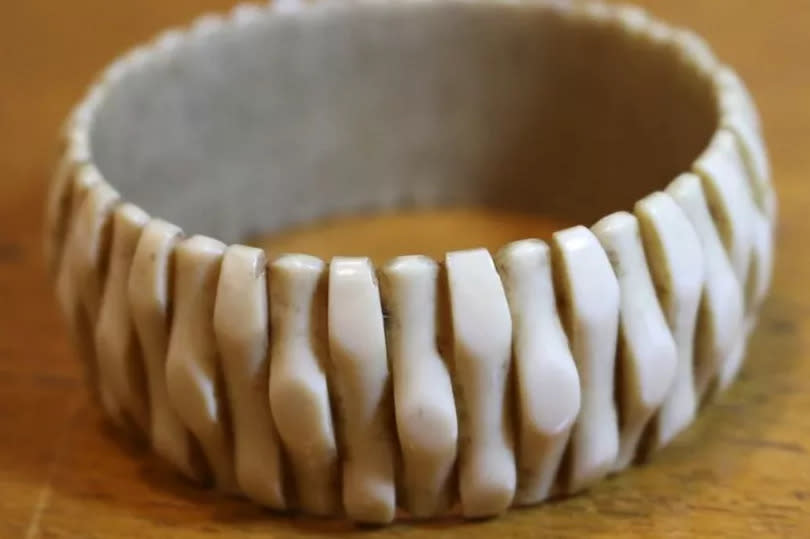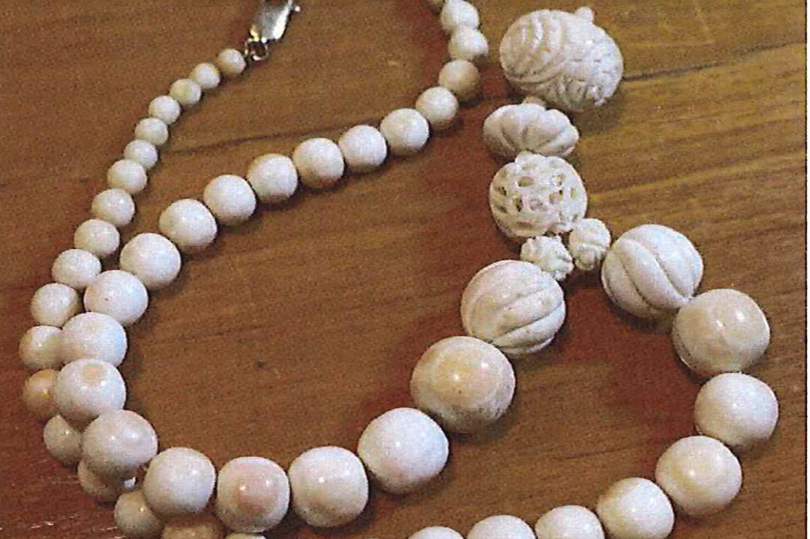Images emerge of Scots ivory trader's collection as pensioner fined in landmark prosecution

Images have emerged of an elephant ivory trader's collection as a pensioner has been fined in a first-of-its-kind prosecution in Scotland.
Joyce Bell, 67, was fined £1,500 after admitting to selling over 100 items made with ivory obtained from the tusks of elephants on eBay. The products, which were sold to many customers in China, were sold between 2016 and 2022.
The pensioner was convicted at Dundee Sheriff Court on Monday. Details shared by the Crown Office and Procurator Fiscal Service (COPFS) confirm that Bell's operation was uncovered when Border Force officers at Heathrow Airport seized seven parcels that they suspected contained the illegal produce.
The majority of the parcels were destined for China. Officers highlighted the goods to the National Wildlife Crime Unit (NWCU), a UK-wide police unit that deals with wildlife crime throughout the UK.
Police inquiries subsequently found that the items that had been sent by Bell had been intercepted over several years. Examination of the parcels revealed that seven contained 15 items of ivory.
A seizure notice was sent to Bell at her home address. She had previously declared the items belonged to her. The court heard Joyce repeatedly ignored warnings over her illegal packages.
It also heard that eBay accounts registered to Joyce and a number of family members revealed that five of the seizures were related to sales made via her online trading accounts.

In total, Bell made a total of 121 sales that she falsely described as bovine bone but which, on analysis, were revealed to be ivory. Of these, 93 sold for a total value of £6412.12 and appeared to have been re-exported without the legally required export permits.
Bell also admitted to exporting numerous items made of Ivory without applying for or obtaining an export permit from the Animal Plant and Health Authority (APHA), contrary to the Customs and Excise Management Act 1979. Pictures from the pensioner's collection show a bangle, necklace and ornament made from the illegal produce.
Iain Batho, who leads for the Crown Office and Procurator Fiscal Service’s Wildlife and Economic Crime Unit (WECU), said: "Since the Ivory Act 2018 came into force on 6 June 2022, it is a criminal offence to deal in ivory, with only a few very specific exemptions. A common misunderstanding is that items containing ivory crafted before 1947 can be sold legally, but this is not the case.
“The exemption for items pre-dating 1947 only applies if the item is made up of less than 10% ivory, the ivory is integral to the item and if it has been lawfully registered. Any member of the public dealing in items which may contain ivory are strongly encouraged to familiarise themselves with the terms of the Ivory Act 2018.

“In this case, whilst the actions of Joyce Bell may seem remote from the suffering of elephants in the wild, the two are directly linked. Without an illegal ivory market driving demand for such items there would be no need for the ongoing harm being caused to wild elephants. COPFS takes offences committed under the Ivory Act seriously and action will be taken against those who choose to engage in such conduct, where there is sufficient evidence of a crime and where it is in the overall public interest to do so.
“The result in this case is a testament to the collaborative working between COPFS, Police Scotland, the UK National Wildlife Crime Unit (NWCU) and the UK Border Force Agency."
Don't miss the latest news from around Scotland and beyond - Sign up to our daily newsletter here.

 Yahoo News
Yahoo News 
